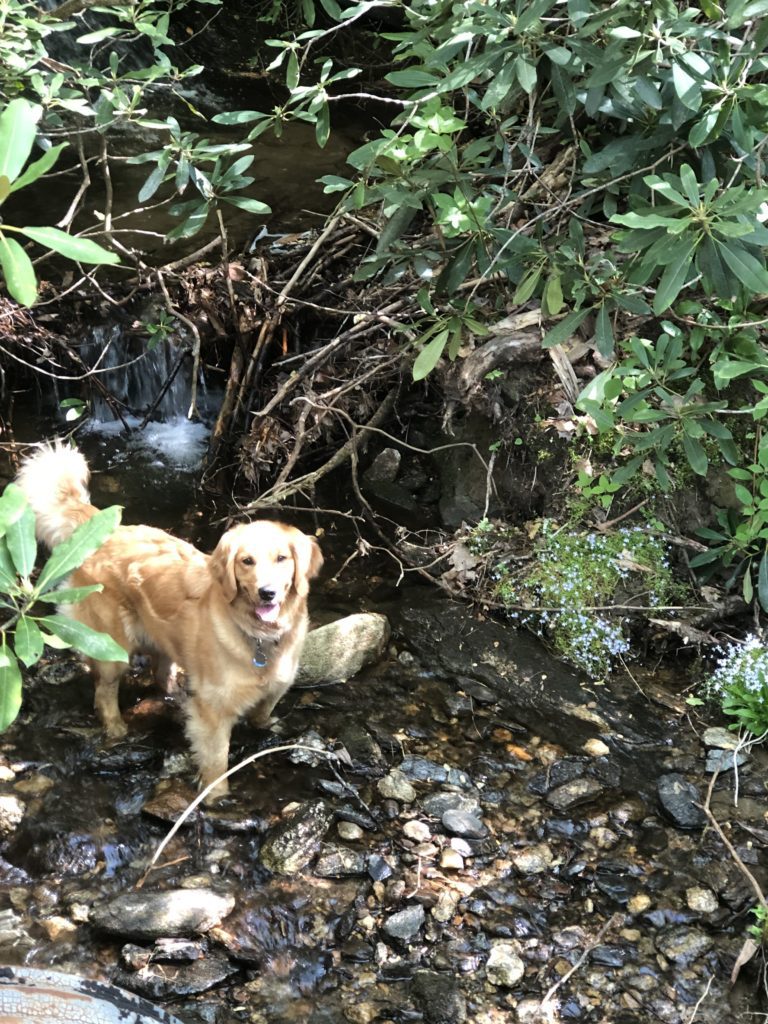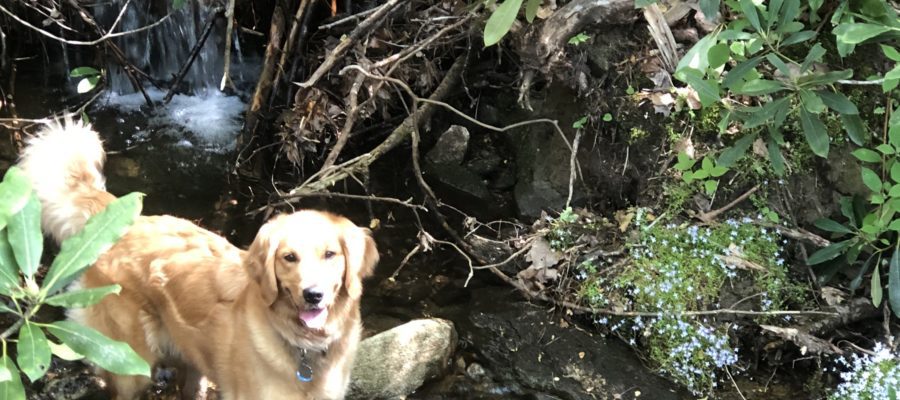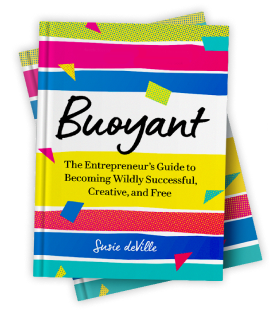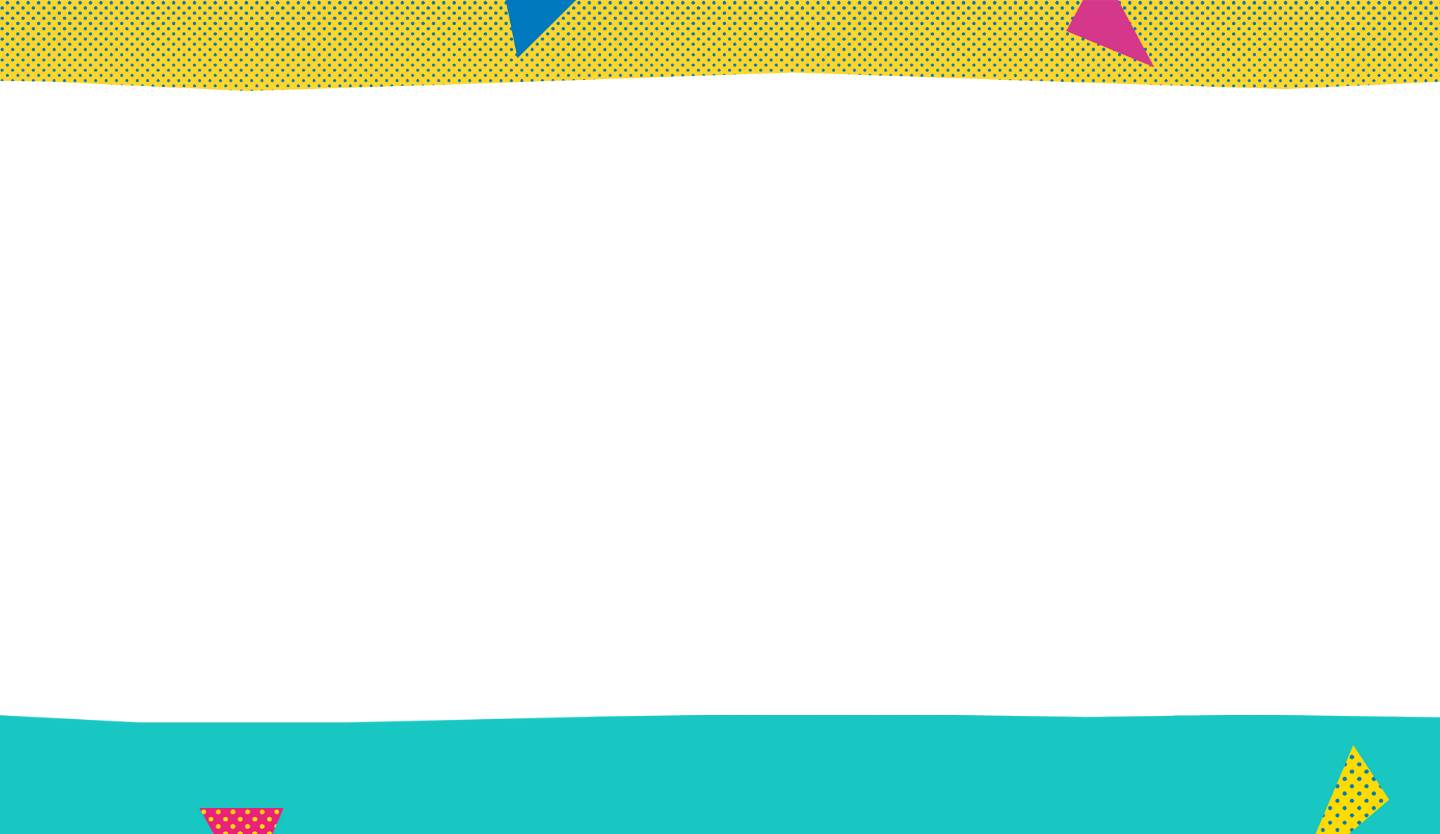En mai, fais ce qu’il te plait.” ~ French expression
(“In May, do what makes you happy.”)
I spent the majority of my childhood engaged in imaginative play.
My sister, our friends, and I created elaborate scenarios for whatever we decided to play. We might spend several days building a tree fort out of scraps of lumber and plywood, writing down detailed scenes for a play we’d later act out, creating worksheets for use in our make-believe school classroom, or dreaming up detective’s clues for a murder mystery we were simultaneously creating and solving.
We’d hunt for salamanders and crawdads under rocks in stream beds, pick up garnets and shards of mica on abandoned road beds, make necklaces and crowns out of dandelions and buttercups, and swing on apple tree branches while blossoms shook down all around us like snow.
A rainy day was as fun as a sunny or snowy one. We chased opportunities to play like a golden retriever running toward a swimming hole.
I remember seeing a copy of Time Magazine on the kitchen counter. The title on the cover was something like “Why We Are So Stressed Out.” I looked at the picture of the harried people and could not understand why the magazine was devoting so much attention to stress. I didn’t even really understand what the word stress meant.
I was 11 years old.
Now, this is not to say that I did not experience sadness, heartbreak, insecurities, and worry. Of course I did. But stress? No.
That was to come in my 20s.
I can almost pinpoint the precise moment when my mindset shifted. It was 1993, and I was the Founding Executive Director of the Literacy Council of Highlands. We were about to embark upon our very first community-wide fundraising effort, and we had decided to do a direct mail campaign to generate interest.
I was excited about the prospect of trying something I had never done before, but I also felt a groundswell of stress bubbling and expanding under the surface. I elected to simply ignore it because, I reasoned, I had been in countless situations in the past where I truly had no idea what I was doing and always successfully managed to build the plane while I was flying it.
We ended up creating a campaign that was creative, fun, and brought in a sizable amount of donations. While I was delighted, I was concerned about how stressful the entire experience had been for me.
What was going on? What had happened to my playful pluck?
In a word, duty.
What had changed was that now I was no longer just responsible for myself. In the past, if I had bombed something, I was the only one effected. Now, I felt a tremendous amount of responsibility to our students, volunteers, board members, and to the entire community as a whole. If something I did was not successful, others, many others, could be negatively impacted.
This was the beginning of the rewiring of my brain—away from synapses that fired with a curious and playful outlook to one of a duty-bound determination.
As my responsibilities grew, my sense of obligation similarly increased. A few years later, I would become the Founding Executive Director of a second nonprofit, the Peggy Crosby Community Service Center. This was a project far greater in scope, complexity, and responsibility. I loved the work, but found my desire to please and perform jumping to exponential levels.
Duty, duty, duty. Stress.
When I became a parent, I reclaimed my childhood spirit. After all, playing with a baby and young children is a perfect conduit to reliving one’s own youth. I enjoyed the toys, outings to the park, fishing in area lakes, field trips, and games as much as my children did! Fun was alive and well in my life once more.
When the economy crashed in 2008, everything changed.
My husband and I divorced, and I faced a mountain of debt. I gathered myself up, launched a new firm, and began working like a maniac. 18-hour days were not only common, but routine. Fueled by adrenaline and determination, over the course of 5 years, I was able to put my youngest son through private school, and my eldest through college. I also managed to pay off all my debt.
There was a casualty, though.
One evening my youngest son asked me, “Mom, why aren’t you playful anymore?”
Gut wrenching.
I knew the moment the question left his lips, that he had spoken the awful truth. All I could manage to say was, “I don’t know, Honey.”
I did know.
My son plopped down on the couch beside me, and somehow had the unbelievably mature presence of mind to simply hold space for me. He leaned a broad shoulder into my own for support.
Those old cerebral grooves of duty and stress had reformed with gusto. In their wake lay my joie de vivre.

I began reexamining not only everything in my life, but more importantly, who I was. Whom I had become. How I spent my time.
Over the course of a year, I created myself anew—habit by habit, thought by thought. I began replacing after-hours work with creative pursuits. I learned how to sketch and paint. I reconnected with nature on long walks in the woods. I began writing again. And after a 20-year drought without any travel overseas, I booked a trip to Paris.
In a café on the Left Bank, I looked around and saw love and joy and connection to spirit everywhere. Everything the Parisians did was done with a singular purpose: to bring art and beauty into one’s own life or to another.
My adventure in Paris was something out of a fairy tale. It rekindled my passion for flâneuring (strolling about and getting lost on purpose) and sparked many future trips to Europe. It brought me back to me, and encouraged me to let go of my furrowed brow of duty. Back in the States, I relaxed more and more, continuing to reintroduce myself to all the things that brought me pleasure.
It would take almost 3 more years before my constitution was consistently on par with the child who once braided flowers for her hair, sat in the grass for hours listening to birds sing, and talked to the trees.
“You’re back, Mom,” my son said one afternoon at lunch. Blinking away tears, I nodded.
On a walk soon thereafter, I heard a piece of great advice on Tim Ferriss’ podcast. He suggested that when confronted with something that seems too trying, complicated, scary, and/or stressful, we should ask ourselves, “What would this look like if it were easy?”
I took his advice to heart and added it to my growing repertoire of how to stay fully in the game while maintaining ease and grace. As helpful as this was, it still felt like a piece was missing. It addressed my brain swirl, but left out my spirit. So, I amended it.
I added, “How could I move through this with a playful heart?”
This simple question unlocked all the remaining doors. One by one, dead bolts and sliding locks released. It worked for me in every situation, no matter the level of perceived or real obligation or stress.
I stopped taking everything so damned seriously.
When people are asked on their deathbeds what their greatest regrets are, most of the time people will say they wished they hadn’t spent so much time worrying. Looking back over their lives, they can spot their ludicrous focus on meaningless minutiae.
When I sat with a friend who was nearing the end of her life, she said, “If I could go back in time, I’d tell myself to relax. Everything is going to be just fine.”
We cannot stop the pressures of daily living, and why would we? Trying or triumphant, chaotic or calm, this is all the stuff of having the ultimate human experience during our short time here.
Choosing how we ride the rapids is our charge.
Looking again to the Parisians for inspiration, we can revel in how they take each moment as an opportunity to uncork a fount of joy. For example, consider this fun essay on how to carefully and joyfully pack the ultimate picnic basket. A seemingly small gesture, but those are the very moments that comprise a life well lived.
If you are in a season of funk, and your playful spirit has seemingly abandoned you, remember this: We create every moment of our lives.
No matter what, we always have the liberty to paint our days with vibrant color and abandon.










